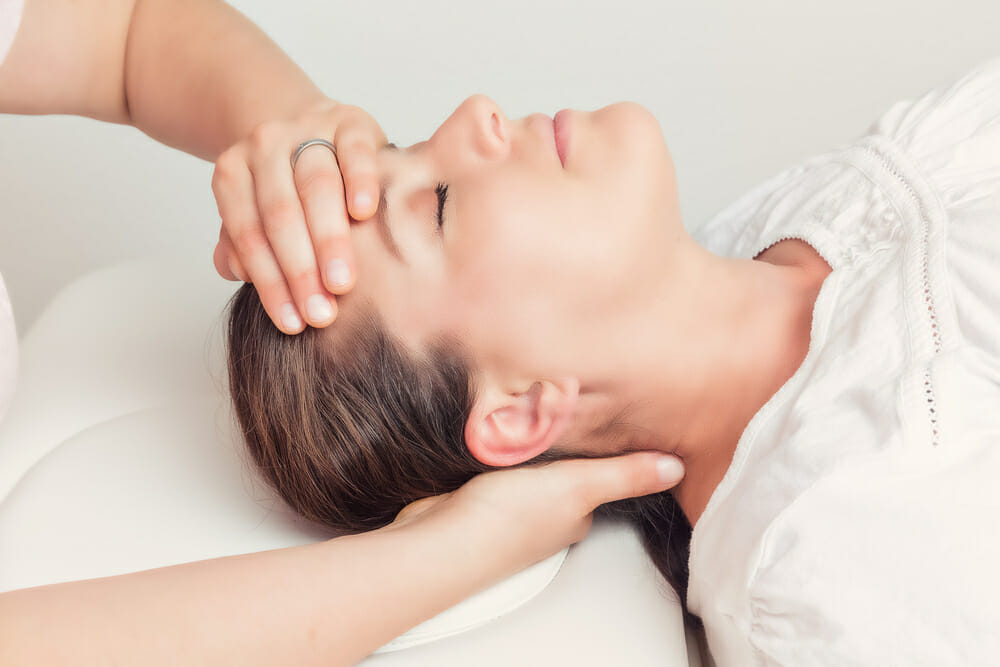
You’ve likely experienced many headaches in your life.
They can cause aching and pain in various areas of the head or behind the eyes.
Sometimes, the pain may occur on one side of the head, or both sides, and may be associated with jaw or neck issues.
So, what are tension headaches?
Tension headaches: an unwelcome visitor
Tension headaches are a common type of headache, affecting up to 80% of people at some point in their lives. They cause pressure that is often described as a tight band around the head. Occasionally, this can spread down to the neck. They generally don’t cause significant problems unless they are recurring.
Most commonly affecting women and linked to stress and musculoskeletal neck problems, these headaches can last for hours or even days. When left untreated, chronic tension headaches can seriously impact your quality of life, causing missed work and social events, which can lead to stress, anxiety and depression.
Fortunately, there are many options for treatment of this condition and many ways you can find relief.
Causes of chronic tension headaches
There are many causes of headaches. They can be an isolated problem, or may be a symptom of an underlying cause. That’s why it’s important to consult with a healthcare professional if you’re experiencing regular headaches.
Some common headache triggers and causes of chronic tension headaches include:
- Muscle tension
- Stress
- Poor or awkward postures or poor ergonomics
- Eye strain—from long periods of reading or screen time
- Medication overuse headache—may occur when pain relievers are regularly used more than 3 times per week
If your tension headache arises suddenly and severely (i.e. a ‘thunderclap’ headache) or occurs following a head injury or accident, seek emergency medical care immediately.
Common chronic tension headache symptoms
Common symptoms of chronic tension headaches may include:
- Dull aching or pain in the head or behind the eyes
- Sensation of tightness or pressure, like a band around the head
- Light sensitivity
- Tenderness of the scalp, neck and shoulder muscles
Chronic tension headache sufferers may also experience symptoms such as nausea or vomiting, which are more commonly associated or combined with migraine headaches.
Diagnosis of chronic tension headaches
It’s important to consult with a health professional if your tension headaches begin to disrupt your life or you need to take pain relief medication more than 2–3 times a week. They’ll be able to provide you with a diagnosis and provide treatment options.
An experienced physiotherapist is able to identify the muscles associated with your chronic tension-type headaches through clinical assessment. A physiotherapist’s diagnosis considers the symptoms the patient is experiencing, clinical assessment and initial response to treatment. This will then determine the best course of action to resolve the condition.
Tension headache treatment
Physical therapy
Physiotherapy is a very effective treatment option for chronic tension headaches. By relaxing tense muscles, immediate relief can often be achieved from physio, dry needling or massage.
In fact, there are many effective treatment techniques your physiotherapist may employ, including:
- Joint mobilisation, to help loosen stiff neck joints
- Muscle strengthening exercises, to help reinforce specific neck muscles and other surrounding muscles
- Massage, acupuncture, dry needling and stretching, to help loosen and relax tight or overactive muscles
- Posture correction, to improve biomechanics and reduce pressure on muscles and joints
- Ergonomic advice, to ensure computer and phone use does not cause ongoing symptoms or recurrent episodes.
Seeing a physio for neck pain or chronic tension headaches may not be the first form of treatment people consider, however, tension headaches often respond well to physiotherapy and people are often surprised by how effective it can be.
Long lasting, positive results can be achieved by working with a physiotherapist while also making some key lifestyle adjustments.

Medication
Medication may be needed in the early stages to manage your tension headaches until physiotherapy takes full effect. If over-the-counter medication does not relieve your chronic tension headaches, you should visit your doctor for advice. Depending on your history and current condition, they may prescribe you stronger medication to find relief.
Tricyclic antidepressants, including amitriptyline and protriptyline, are the most commonly given medications to relieve chronic tension headaches—though these are prescribed at a much lower dose than that which would usually be prescribed to treat depression.
Dry Needling
Dry needling acupuncture is a common treatment option for chronic tension headache sufferers. Its usefulness in treating many different kinds of pain and its ability to relax tense muscles may offer relief from tension headaches.
As stress and heightened emotions are a common cause of tension headaches, behaviour therapies including biofeedback and talk therapy are two great examples of ways you can learn to better manage stress, which may result in fewer tension headaches.
Lifestyle changes to help prevent chronic tension headaches
Making some key lifestyle adjustments may help to prevent, or provide relief from, severe headaches, such as chronic tension headache. Seeing a physiotherapist while making these changes will help support the effectiveness of your treatment.
Here are some lifestyle changes you should consider making:
- Introduce regular physical activity into your routine
- Get enough sleep, but not an excessive amount
- Attend talk therapy to learn better stress management
- Maintain a healthy diet
- Avoid long time periods of sedentary behaviour
- Practice relaxation techniques, such as yoga and meditation, to help reduce stress
- Quit smoking
- Drink plenty of water
- Limit alcohol, caffeine and sugar
Want help to relieve your tension headaches?
At Integrity Physio, our team of Como physiotherapists are experienced in treating a huge range of painful conditions, including tension-type headaches. If you’re ready for effective, long lasting treatment of your chronic headaches, reach out to us today to find out how we can help relieve your headache pain.



